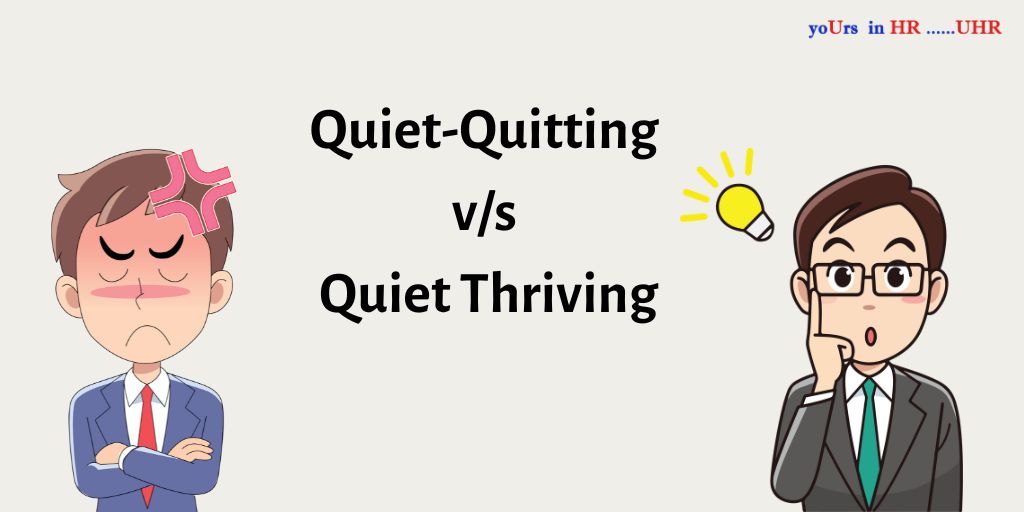
All through the years surrounding the pandemic, we have heard the buzzword ‘quiet quitting’. Quiet quitting refers to employees doing the bare minimum- engaging in the bare minimum way with their job, doing the bare minimum that is needed out of them.
It all happened as during the pandemic many people realized that life is too short to stress over a job that they do not like. Life is too short to stress over frustrations in the professional sphere, the office politics, colleagues they don’t gel well with and bosses who don’t hear them out. And so, people just did the bare minimum and focused more on their life outside work.
But soon many people also started to realize that although life is too short to do a job you do not like, it is also not a very good practice to do the bare minimum when the job pays your bills and lets you live a life of comfort. After all, boredom comes when there’s the space and comfort to be bored.
Enter Quiet Thriving. It is essentially understanding that the job may not be perfect, but still finding ways to engage with it in the best way you can.
Before we go into our definition, a word: If one looks up online, there will be tons of articles mentioning some Quiet Thriving strategies. One of them is setting up boundaries. For example, not checking work emails after an agreed upon time, or being clear with how much work you can handle before you approach a burnout. Another strategy also includes finding a few colleagues you can become friends with. One more strategy is taking little breaks, or setting realistic intentions about accomplishing just a few things on your to-do list and so on. But let us face it, we all must have tried one thing or the other at some point, and it can still not be enough to find a way to thrive at your job, to find it more likeable and less tedious. Quiet Thriving is actually a lot more about changing your perspective as these articles rightly mention.
It is actually about doing small tweaks in your thinking, more than attempting to control the factors outside.
Quiet Thriving in simple words is a shifting of perspective. It is a reframing. It is asking yourself questions like:
- ‘Do I really dislike my job so much that I am closing my mind to everything?’
- ‘What is that one thing about my job that I genuinely like?’
- ‘This is my job, and it is necessary that I see some value in it. What can I do to add more meaning to it?’
And so on.
What are some strategies that can help one get that shift in perspective and actually start to Quietly Thrive?
- The number one strategy is in the above explanation itself- shift your perspective! As cliché as this sounds, looking at the positives of the job can help you find more meaning and motivation to do the job. Sure, there are negatives (they are everywhere!), but what are the positives? It could be something as simple as recognizing that this job gives you a sense of structure. Or it could be something as complex as connecting it to wider purpose. Miss P didn’t like working for an online shopping portal company because she thought they were acting as middle-men between vendors and customers. A shift in perspective helped her understand the wider purpose- they weren’t just acting as middle-men, they were making life easier for the vendors who might not always know whom to approach to sell their products online, giving them more sources of income and more reach. Her company was making lives better.
- Another strategy, similar to shifting your perspective is called ‘job crafting’. There will be certain responsibilities you might enjoy more than other responsibilities. You can seek out more of those responsibilities by asking your manager or the team leader, and find a way to ‘craft’ your job a certain way, such that you end up doing more of what you like. It will be a work in progress, but it can offer a high sense of thriving and fulfillment nevertheless.
Once we get the ball rolling, it can actually a become a fun activity to finding ways to Quietly Thrive at work. It can become a fun activity to shift your perspective and understand that the job you dislike might actually not be that bad. Quiet Thriving could be that one positive missing ingredient in your perspective.

